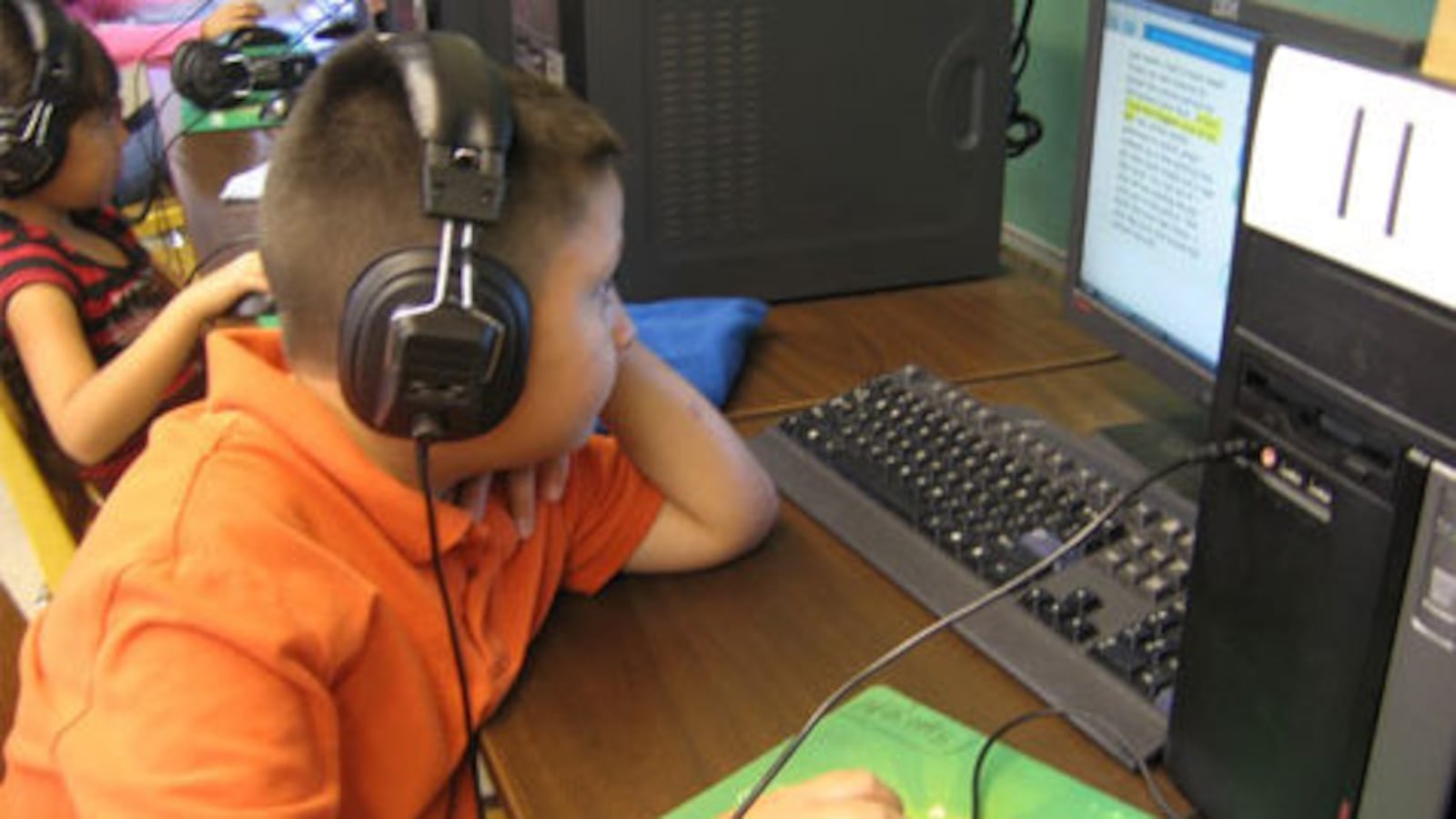In an about-face from last month, a majority of State Board of Education members on Thursday said they had no confidence that the HOPE Online elementary school model can or will ever work, and ordered it closed.
“I do try and protect school choice whenever I can get to the conclusion that it’s a reasonable risk,” said Republican State Board member Steve Durham. But in HOPE’s case, he said, it’s “hard to get to that conclusion.”
The board vote was 5 to 2. It’s the first time under the current accountability system, in place since 2009, that the State Board has ordered a school closed against its wishes. Some districts have chosen on their own to close low-performing schools.
The order will require HOPE’s elementary centers to close at the end of the school year, according to a spokesperson for the state. The centers enroll about 846 elementary students, who would have to find other schools. About 89% of them qualify for subsidized lunches — a measure of poverty.
The organization’s middle and high schools, whose students attend the same centers, will continue to operate.
HOPE Online officials did not immediately comment on the state’s decision.
Board members who voted to close the school cited multiple issues with the school’s model, its finances, the lack of qualified teachers, and the lack of control over its learning centers.
HOPE Online operates its 11 centers in multiple districts. Designated as an online school, but not being strictly online, HOPE contracts with independent, nonprofit organizations to run each learning center. Students attend the center where they’re enrolled every weekday and get half their instruction online and half in person from what HOPE calls mentors.
HOPE provides the computers, curriculum, and a little more than $3,500 per student to the learning centers. The center operates the building and hires the mentors, who do not have to be licensed to teach. More than 40% have less than an associate degree, but HOPE officials said they can connect with students because they are engaged members of their community.
In the past two years that HOPE has been working — under a previous state order — to improve its student achievement, it has tried to improve the quality of instruction. HOPE has offered mentors training, placing at least one HOPE-employed teacher at each center, and now puts all the mentors on a path to become licensed teachers.
But State Board President Angelika Schroeder pointed out that the number of mentors hired with higher education experience has only decreased. And once those mentors are licensed, they often have left for higher-paying teaching jobs.
Durham put part of the blame on economics. He said he believes the school does not have enough money to hire people who are better qualified to improve instruction at the centers. He highlighted the job requirements for the learning center directors — an ability to communicate, read and write in English, and have computer skills including using Google and Microsoft.
“That’s not an acceptable set of standards for someone who should be functioning as a building principal,” Durham said.
State Board member Val Flores, who ultimately voted with the majority to close the school, applauded many aspects of the school, including the way it helps put more people of color into the teaching profession.
Just two board members, Debora Scheffel and Joyce Rankin, voted against the closure. Scheffel said she also had some concerns with the model, but said the growth scores were promising enough that she was willing to give the school another year. Rankin cited the parent support of the school and said that she believed it best for the school and the authorizing district, Douglas County, to figure out another solution.
State Board members last month had voiced many of the same concerns, but had asked HOPE Online to take a month to figure out if it could partner with a charter school or management organization to improve.
HOPE Online did just that. After putting out a request for proposals, HOPE Online told the State Board Thursday that it had received five proposals including two from local charter organizations Vega Collegiate Academy and University Prep.
HOPE officials asked the state for more time to review the proposals and to try to draft a contract with one — even promising that if its 2020 school rating doesn’t improve, it would close its elementary operations by June 30, 2021.
When Douglas County’s school board renewed HOPE’s contract in April, it also stipulated that HOPE must earn higher state ratings next time it is up for renewal.
Toward the end of Thursday’s hearing, board President Schroeder said that the partnership with a charter would be unlikely to work, partly because of the limited time before Douglas County reviews HOPE again.
State Board members also said they weren’t convinced the partnership would address HOPE’s problem.
Aurora officials had recently voiced many of the same concerns around the school’s model and its mentors, as they had fought the same State Board to stop HOPE from operating within its boundaries. At that time, the State Board overturned Aurora’s attempt to close the local centers.
Correction: This article has been updated to reflect that Generation Schools is not a charter management organization.

